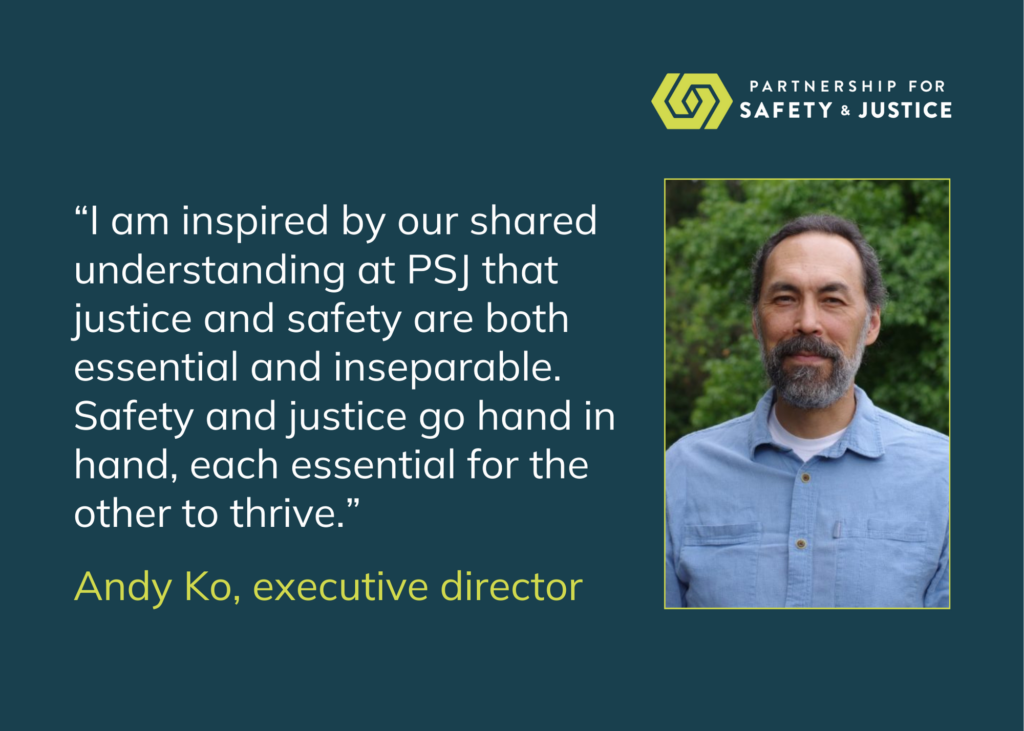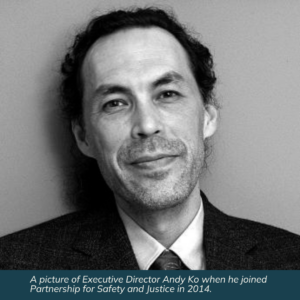Our 2025 session wrap-up
See what we accomplished together and where we have more work to do.

I am inspired by our shared understanding at PSJ that justice and safety are both essential and inseparable. Safety and justice go hand in hand, each essential for the other to thrive.

Justice and safety have to be understood as belonging to all people – those who have caused harm just as much as those who have been harmed. The opinion too often thoughtlessly expressed that “people who commit crimes deserve what they get” misses the point. The criminal justice and public safety systems are supposed to advance justice and safety. They should not undermine communities and families, and they should not undermine stability and prosperity. Safety and justice should not just be for privileged classes but for all.
Expressing and operationalizing this idea of safety and justice being the right of all people – shorn of racial bias and other forms of exclusion, free of brutality or exploitation masquerading as “accountability,” and without undue barriers to healing and restoration – is challenging, to say the least. Working within a community of PSJ staff, board members, allies and supporters committed to this shared belief and the tenacity to keep moving forward continues to inspire me.
I’m proud of the influence this tiny organization has had in Oregon, across the nation, and even internationally.
One of the reasons that we’ve been especially effective is PSJ’s commitment to a solutions-based approach in our work. It is what drew me to PSJ – in my years as an admirer of its early work as the Western Prison Project more than two decades ago through its development as Partnership for Safety and Justice – and what has kept me here as its executive director.
We’re an organization that tends to have staff members with long tenures, exceptional skills, and an over-the-top commitment to our mission and our work. We challenge ourselves to think in new ways. I think that’s what makes us relevant today and ensures our deep potential going forward.
I think the course of criminal justice reform in Oregon and elsewhere will be determined by how young people think. Many of the criminal punishments we have today were created as instruments of repression and control against marginalized communities. I see less and less acceptance across younger generations of that status quo. Each successive generation of younger voters (even as they became older voters) have pushed back on criminalization relating to sexual orientation, gender identity, poverty, mental illness and addiction, ethnicity and race. So, I see less susceptibility to narratives that seek to weaponize public anxiety against nondominant groups for political advantage.
In 2020, Oregon voters were on that leading edge of justice reform when they enacted Measure 110 and decriminalized people suffering from addiction. The trajectory or reform, of course, never follows a straight line. The decision by Oregon voters to take on a dire health crisis with a public health solution stood for over 3 years. But a perfect storm formed by the social and economic dislocations of the COVID pandemic, long-standing failures by government to address the state’s housing crisis, and a longforeseen (but unplanned for) emergence of fentanyl in Oregon, set the stage for a partisan political power struggle in the Oregon legislature that mimicked drug war politics in Congress and state legislatures since Richard Nixon opportunistically declared a “war on drugs” more than half a century ago.
A disappointing outcome for sure, but probably not the last word. The Oregon legislature’s decision to respond by to a public health crisis with a political response criminalizing a stigmatized population is part of an old story that has rarely held up well in the long run.